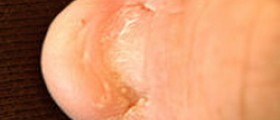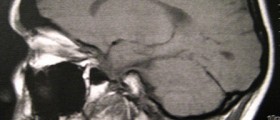
Turner Syndrome - Introduction
Turner syndrome is a genetic disorder which typically affects women. Women normally have the 46 chromosomes. Two of them are sex chromosomes and are designated as X chromosomes. In women suffering from Turner syndrome one of these sex chromosomes is missing. There is also a variety of Turner syndrome in which there are two X chromosomes but one is defective i.e. is missing certain parts. And finally, one more form of Turner syndrome occurs when the absence of one sex chromosome occurs in some body cells. This variation is called Turner mosaicism. Turner mosaicism is a milder form of the disease. Turner syndrome affects 1 in 2.500 girls. This genetic disorder was named after Dr Henry Turner who first discovered the condition.
Symptoms of Turner Syndrome
Symptoms and signs of Turner syndrome may vary according to the variation of the disease. Still, there are certain typical symptoms which occur in all women suffering from Turner syndrome. All patients with Turner syndrome are short-statured. This occurs because the gene in charge with growth of long bones is situated on the X chromosome. Damage of this chromosome, therefore, leads to insufficient height. Women are usually 4 feet 7 inches high. One more characteristic of Turner syndrome is webbed neck. The neck is short and has excess of skin. This excessive skin forms skin folds and this is a reason why the neck appears webbed. Women suffering from Turner syndrome have developmental problems related to ovaries. This usually results in late onset of menstrual bleeding and infertility. Not all the women with Turner syndrome are infertile. It has been reported that certain number of women with this genetic disorder actually become pregnant.
Apart from the previous typical symptoms and signs of Turner syndrome, this genetic disorder may also lead to skeletal abnormalities, puffiness of the hands and feet, short fingers and toes, low hairline and low ears, loose eyelids, obesity, spots on the skin, hearing problems, small lower law, irregular rotation of wrist and elbow joints and soft nails turning upward at the ends. Furthermore, some women may suffer from heart defects and kidney disorders. Turner syndrome increases risk of high blood pressure, diseases of blood vessels, osteoporosis, thyroid disorders and diabetes (type II).
Girls entering puberty may experience low self-esteem and depression because they are different from other, healthy girls. Intelligence in Turner syndrome is intact and there is no mental retardation. Still, there are certain developmental delays. Women with Turner syndrome can also have problems with learning. This particularly refers to mathematics. On the other side they write, read and memorize well enough.
Similar to other genetic disorders there is no cure for Turner syndrome. If the condition is diagnosed on time girls may be administered human growth hormone which will help in bone growth and slightly increase the height. Estrogen is also given to women with an absence of puberty and as a form of prevention against osteoporosis.

















Your thoughts on this
Loading...